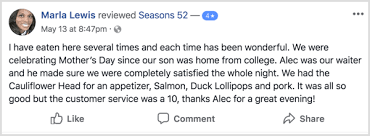The Importance of On-Page and Off-Page SEO
Search Engine Optimization (SEO) is crucial for improving a website’s visibility and ranking on search engine results pages. There are two main components of SEO: on-page SEO and off-page SEO. Both play a vital role in optimizing a website for search engines and driving organic traffic.
On-Page SEO
On-page SEO refers to the optimization strategies that are implemented directly on the website to improve its search engine ranking. This includes optimizing meta tags, headings, content, images, and URLs. By focusing on on-page factors, website owners can make their site more user-friendly and relevant to search queries.
Key elements of on-page SEO include:
- Keyword Optimization: Incorporating relevant keywords in meta tags, headings, and content.
- Quality Content: Creating high-quality, valuable content that engages users and encourages them to stay on the site.
- User Experience: Ensuring the website is easy to navigate, mobile-friendly, and loads quickly.
- Internal Linking: Linking relevant pages within the site to improve navigation and distribute link equity.
Off-Page SEO
Off-page SEO focuses on external factors that impact a website’s search engine ranking. This includes building backlinks from reputable websites, social media engagement, and online reputation management. Off-page SEO helps establish a website’s authority and credibility in the eyes of search engines.
Key elements of off-page SEO include:
- Link Building: Acquiring high-quality backlinks from authoritative websites to improve domain authority.
- Social Media Marketing: Engaging with users on social platforms to drive traffic and build brand awareness.
- Online Reviews: Encouraging positive reviews from customers to enhance the website’s reputation.
- Citations: Listing the business in online directories to improve local search visibility.
In conclusion, both on-page and off-page SEO are essential components of a comprehensive search engine optimization strategy. By optimizing both aspects effectively, website owners can increase their online presence, attract more organic traffic, and ultimately achieve higher rankings on search engine results pages.
Key Insights into On-Page and Off-Page SEO: Understanding Differences, Meta Tag Optimization, Keyword Strategies, Content Quality, Backlink Building Techniques, and the Role of Social Media Engagement
- What is the difference between on-page SEO and off-page SEO?
- How can I optimize meta tags for on-page SEO?
- What are the best practices for keyword optimization in on-page SEO?
- How important is quality content for on-page SEO?
- What strategies can be used for building backlinks in off-page SEO?
- Why is social media engagement crucial for off-page SEO?
What is the difference between on-page SEO and off-page SEO?
The main difference between on-page SEO and off-page SEO lies in where the optimization efforts are focused. On-page SEO involves optimizing elements directly on the website itself, such as meta tags, content, and internal linking, to improve search engine visibility and user experience. On the other hand, off-page SEO focuses on external factors like backlinks, social media engagement, and online reputation management to enhance a website’s authority and credibility in the eyes of search engines. Both components are crucial for a comprehensive SEO strategy that aims to boost organic traffic and improve search engine rankings.
How can I optimize meta tags for on-page SEO?
Optimizing meta tags is a crucial aspect of on-page SEO that can significantly impact a website’s search engine ranking. To optimize meta tags effectively, start by including relevant keywords in the title tag and meta description. Ensure that the title tag accurately reflects the content of the page and is enticing to users. The meta description should provide a concise summary of the page’s content while also incorporating keywords naturally. Additionally, keep the length of meta tags within recommended character limits to ensure they display correctly in search engine results pages. By optimizing meta tags with strategic keywords and compelling content, you can improve your website’s visibility and attract more organic traffic through on-page SEO efforts.
What are the best practices for keyword optimization in on-page SEO?
When it comes to keyword optimization in on-page SEO, there are several best practices that can help improve a website’s search engine ranking. Firstly, it is important to conduct thorough keyword research to identify relevant and high-traffic keywords for the website’s content. Incorporating these keywords strategically in meta tags, headings, and throughout the content can enhance visibility to search engines. It is recommended to use variations of keywords naturally within the content to avoid keyword stuffing. Additionally, creating high-quality and engaging content around targeted keywords can attract users and improve dwell time on the site. Regularly monitoring and updating keyword performance can also help refine the optimization strategy for better results in on-page SEO efforts.
How important is quality content for on-page SEO?
Quality content is paramount for on-page SEO as it serves as the foundation for a website’s relevance and authority in the eyes of search engines. Search engines prioritize websites that offer valuable, informative, and engaging content to users. By incorporating relevant keywords naturally within high-quality content, website owners can improve their chances of ranking higher in search results. Quality content not only attracts organic traffic but also encourages user engagement and retention, ultimately contributing to the overall success of an on-page SEO strategy.
What strategies can be used for building backlinks in off-page SEO?
In off-page SEO, building backlinks is a crucial strategy for enhancing a website’s authority and improving its search engine ranking. There are several effective methods for acquiring quality backlinks, such as guest blogging on reputable websites, engaging in influencer outreach to secure endorsements and mentions, participating in industry-specific forums and communities to share valuable insights and content, submitting press releases to relevant media outlets, and leveraging social media platforms to promote content and attract natural backlinks. By diversifying link-building tactics and focusing on obtaining links from authoritative sources within the industry, website owners can strengthen their off-page SEO efforts and establish a strong online presence.
Why is social media engagement crucial for off-page SEO?
Social media engagement is crucial for off-page SEO because it plays a significant role in building brand awareness, driving traffic to the website, and acquiring valuable backlinks. When users engage with a website’s content on social media platforms by liking, sharing, and commenting, it signals to search engines that the content is valuable and relevant. This social proof can enhance the website’s authority and credibility, ultimately improving its search engine ranking. Additionally, social media platforms provide an opportunity to reach a wider audience and attract potential customers, leading to increased visibility and brand recognition. By actively engaging with users on social media, businesses can strengthen their online presence and establish a strong off-page SEO strategy that complements other optimization efforts.





